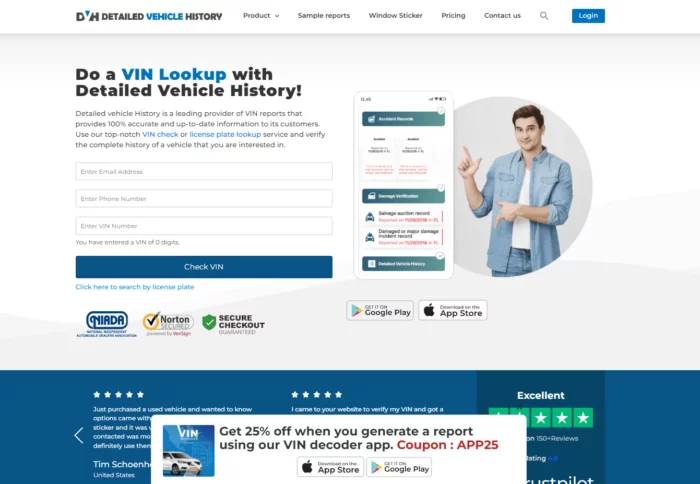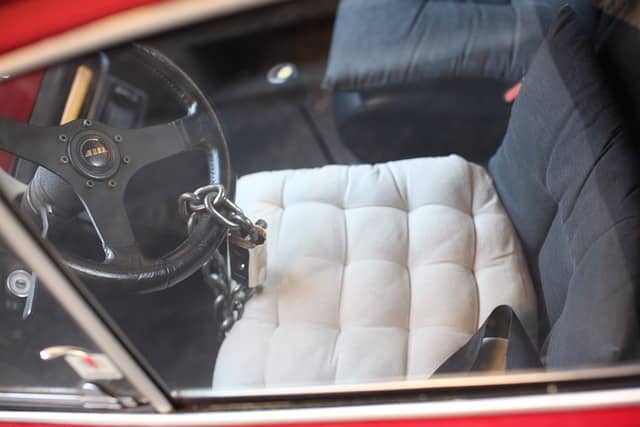No one wants to walk to the parking lot and discover that their vehicle has been stolen. Unfortunately, this is a very common occurrence among car owners today. According to the National Insurance Crime Bureau, approximately 1,001,967 vehicles were reported stolen to the NICB in 2022. How can we discourage this act and keep our vehicles safe? This article discusses the role of car reports in preventing auto fraud and theft.
What is a car history report?
A car history report is a document that contains information about a vehicle’s history and records. With a car history report, car buyers and sellers can find important vehicle information that helps in determining the overall reliability of a vehicle. Some of the information found in a car history report includes:
- Theft history.
- Accident history.
- Damage history.
- Service history.
- Maintenance records.
- Ownership history.
- Vehicle specifications.
- Open recalls.
- Title history, and more.
With these details, car owners are given the opportunity to purchase the best vehicles at dealerships since they have the right information. This way, they can also prevent auto theft and fraud involvement.
What is the Importance of Car History Reports?
Vehicle history reports are required for anyone trying to purchase a used car from a used car dealership. They contain useful information about the vehicle’s history, as previously mentioned, and this information assists buyers in making informed decisions during car purchases at dealerships or private car sales.
Some of the reasons car reports are important are:
Identification of potential car issues
Car history reports providing details of the vehicle’s accident history, service records, and other vital information. This information can assist you in identifying potential car issues that may not be obvious during a physical or mechanical inspection. For example, if the car has a history of accidents, you can presume that it has underlying mechanical issues that need to be addressed. These mechanical issues may not be obvious at the dealership but may cause potential problems in the future.
Purchase affordable and reliable vehicles.
Another benefit of vehicle history reports is easy access to market value information. With the Detailed Vehicle History VIN Check tool, consumers are provided with accurate vehicle information that determines the value of a used vehicle. For example, a vehicle’s condition, age, mileage, and some other factors greatly affect the value of a used vehicle at dealerships. A car with a salvage title may be sold for 20–40% less than its listing price. This information can assist you in negotiating a fair price for the vehicle and avoiding overpaying.
Prevent auto theft and fraud
A vehicle history report can be seen as a tool to prevent auto theft and fraud. If you are a car buyer purchasing a vehicle from a dealership or private seller, with theft records on a vehicle history report, you can easily tell if a vehicle has been stolen or not before purchase. With a vehicle history report, car buyers can also identify odometer fraud and report it to the appropriate authorities.
The role of car reports in preventing auto fraud and theft during the car-buying process

Auto theft has been a huge problem for years now, and combating it is an issue. However, with vehicle history reports, consumers are able to protect themselves from purchasing stolen vehicles and fraud. These documents serve as an essential tool in the fight against auto fraud and theft. They provide crucial information on the vehicle’s history, which can help you avoid buying a stolen vehicle or one with outstanding loans or liens.
Car reports help protect consumers from fraud and auto theft prevention by:
Recognizing stolen vehicles
Vehicle History Reports detail the car’s ownership history, including the number of prior owners and whether or not the vehicle has ever been reported stolen. If the vehicle is reported stolen, the report will include information on the agency that reported it stolen as well as the date it was reported stolen. With the ownership history provided by Detailed Vehicle History, you can also protect yourself from auto fraud. How? Just take a close look at the current owner’s details and locations. There, you will find out if a vehicle seller is a scammer or not and avoid becoming a victim of auto fraud.
Examining outstanding loans and liens
Vehicle history reports also detail any outstanding loans or liens associated with the car. If there is an existing loan or lien on the vehicle, it signifies that the previous owner used it as collateral for a loan or credit line. If the previous owner does not repay the loan or credit line, the lender can repossess the car. If you buy a vehicle with an existing loan or lien, you may be obligated to repay the amount or risk losing the vehicle. Car history reports will assist you in avoiding purchasing a car with outstanding loans or liens associated with it and avoid being a victim of auto fraud.
Identifying Lemons
Another auto fraud scheme that is used by scammers is selling damaged vehicles (lemons) to unsuspecting customers. Lemon is a vehicle with a serious mechanical defect that has failed to be fixed even after multiple repairs and stands as a safety threat to a car buyer. With a vehicle history report, consumers can gain full access to accident and damage records that can point to a vehicle’s underlying mechanical and safety issues. If the vehicle has had multiple severe accidents, it could just be a lemon. Avoid these kinds of vehicles to prevent falling victim to auto fraud.
ALSO READ: Is It Better to Buy a Used Car Compared to a New Car?
Auto Theft Prevention Tips
Vehicle history reports protecting car buyers from purchasing damaged vehicles and falling victim to auto fraud. A vehicle history report, however, doesn’t protect your vehicle from being stolen. As a car owner, there are several auto theft prevention tips you should remember. They are:
- – Always keep your vehicle locked.
- – Don’t leave your keys in your car.
- – Park in well-lit areas.
- – Install an anti-theft device.
- – Don’t leave valuables in your car.
- – Be vigilant.
Always keep your vehicle locked
Do people actually leave their cars unlocked? Yes. It might seem obvious, but quite a number of people forget to lock their vehicles after they park them. The easiest way to prevent auto theft is to simply keep your car locked each time it is parked. Double-check your windows and doors and ensure they are locked.
Don’t leave your keys in the car
No matter how soon you’ll be returning to the car, avoid leaving your keys in the car. Ensure the vehicle is properly locked and your keys are with you. Leaving your keys in the car makes your vehicle an easy target for thieves.
Park in well-lit areas
Another means of auto theft prevention is parking your car in well-lit areas. This way, thieves are less likely to have their eyes on your vehicle because they may be seen easily. Try to keep your car parked in well-lit and busy areas whenever possible. Parking in areas with security cameras also prevents thieves from making your vehicle their target.
Install an anti-theft device

Another recommended auto theft prevention tip is installing an anti-theft device. Having an anti-theft system installed in your vehicle makes stealing it difficult. There are many types of anti-theft devices available for car owners: steering wheel locks, alarms, immobilizers, etcetera. These devices aid in auto theft prevention and protect car owners from losing their vehicles.
Don’t leave valuables in your car
Leaving valuable items such as jewelry, laptops, and so on, can attract thieves. They may want to break the windows to steal valuables and proceed to steal the car. To protect yourself from auto theft, it is advisable that you remove your valuables from the car whenever you step out of it, or you can keep jewelry in the glove compartment, where it’ll be out of sight.
ALSO READ: 5 Carfax Alternatives To Check Vehicle History (2023)
Be vigilant
Last on our list of auto theft prevention tips is “Be vigilant.” Being vigilant and aware of what’s going on around you is a good way to easily identify a car theft in progress. If you notice that you’re being followed or any suspicious activity, call the police immediately and inform them.
Did you know? There is a federal law enacted to combat the problem of auto theft in the United States known as the Auto Theft Prevention Act, also known as the Motor Vehicle Theft Law Enforcement Act.
The Auto Theft Prevention Act provides funding to state and local law enforcement agencies to support programs against auto theft. It also stands against those involved in auto theft and fraud.
Auto theft and fraud can happen to anyone at dealerships or in driveways. For car buyers seeking to purchase reliable cars without becoming victims of auto theft, it is recommended to generate a vehicle history report with the VIN check tool provided by Detailed Vehicle History. This would help you identify the vehicle’s hidden history, including theft records, accident and damage records, title records, and so on. This way, you can be protected from car fraud and purchase reliable cars.
For car owners, auto theft can be prevented by keeping vehicles locked, taking out car keys, parking in well-lit areas, using anti-theft devices, keeping valuables out of sight, and being vigilant. If you keep to these auto theft prevention tips, you won’t have to worry about becoming a victim of auto theft or fraud.









